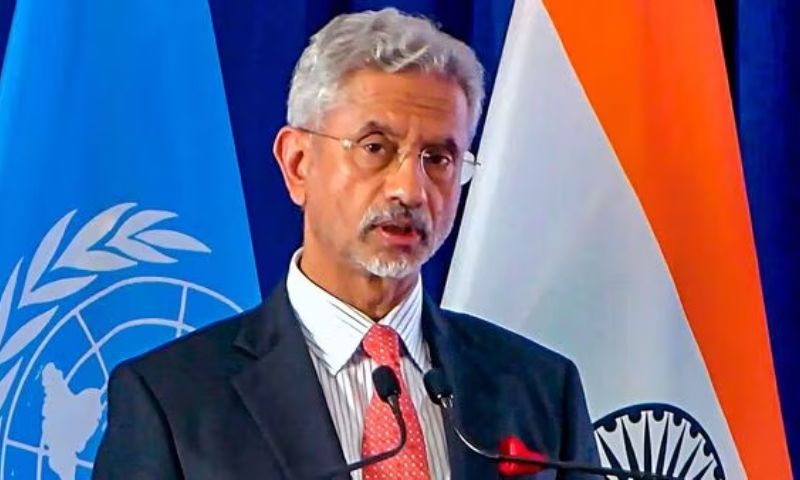NEW YORK: In response to US pressure on India to collaborate with Canada in investigating the murder of Sikh leader Hardeep Singh Nijjar, India’s External Affairs Minister, S. Jaishankar has indicated India’s willingness to examine any “specific” information provided by the Canadians concerning the incident.
Hardeep Singh Nijjar was fatally shot outside a Sikh temple in Surrey, a Vancouver suburb with a substantial Sikh community, on June 18. Nijjar had advocated for an independent Khalistani state and was designated as a “terrorist” by India in July 2020.
Tensions escalated when Canada recently stated that it looked into “credible allegations” linking the Indian state to the murder. India dismissed these allegations as “absurd.”
Speaking at a Council on Foreign Relations event in New York, Jaishankar outlined India’s response in diplomatic interactions, saying, “One, we told the Canadians that this [cross-border killings] is not the policy of the Government of India. Two, we told the Canadians that if you have something specific or relevant, let us know – we are open to looking at it.”
The Indian government has consistently reacted strongly to demands by Sikh separatists in Western countries for Khalistan, a separate Sikh homeland.
Jaishankar further stated that India had shared “a lot of information about organized crime and leadership” related to secessionist groups operating from within Canada.
He emphasized that the situation should be viewed in its entirety, acknowledging that in recent years, Canada has witnessed significant organized crime associated with secessionist forces, violence, extremism, and their interconnections.
“There are a large number of extradition requests. Some terrorist leaders have been identified,” Jaishankar added.
This dispute became public knowledge earlier this month when Canadian Prime Minister Justin Trudeau mentioned that Canada’s intelligence agencies were investigating whether “agents of the government of India” were involved in Nijjar’s murder.
Following Canada’s allegations, India issued a strongly-worded statement expressing “strong concerns about continuing anti-India activities of extremist elements in Canada” and accusing them of “promoting secessionism and inciting violence against Indian diplomats.”
Both countries subsequently expelled one diplomat from each other’s country. India also suspended visa services for Canadians, citing security concerns at its diplomatic missions in Canada.
Regarding the “intelligence” shared among the Five Eyes, an intelligence-sharing network comprising the US, Britain, Canada, Australia, and New Zealand, concerning Nijjar’s murder, Jaishankar clarified that he was not part of the Five Eyes network or the FBI, making him the wrong person to address such matters.
Meanwhile, the U.S. supported a comprehensive and impartial investigation into Canada’s allegations in Washington. U.S. State Department Spokesperson Matthew Miller stated that the U.S. believed India should cooperate with the investigation and that India remained an important partner of the United States. He urged India to cooperate with the Canadian investigation on this matter. —APP























